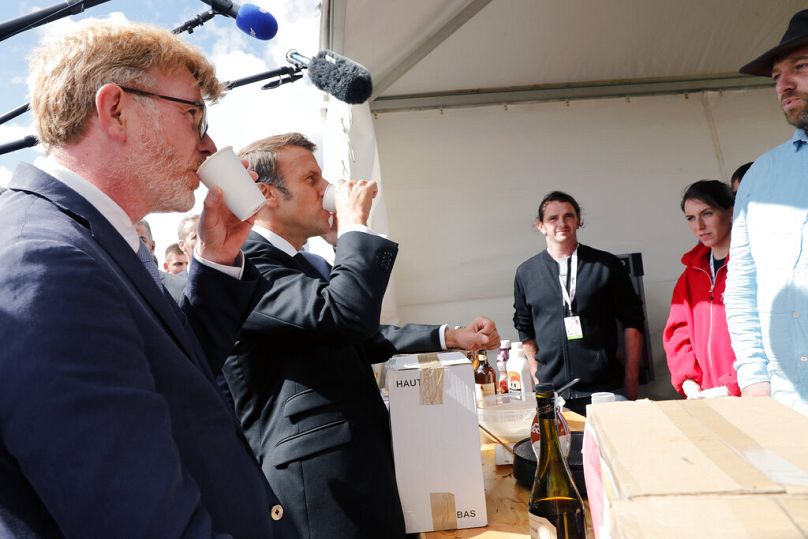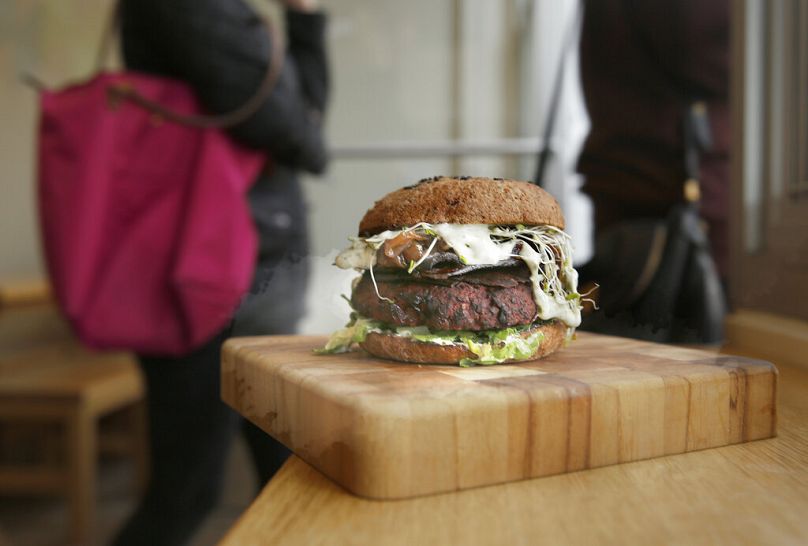We can replace meat with cheap, low-carbon, non-subsidised plant-based meat and in the process spare animals, the climate, and our bodies from the harms of conventional meat, Sarah Lake writes.
While there is overwhelming evidence that the only way we can reach climate goals is by reducing the volume of meat consumed globally, there is also the very real constraint that people need cheap food, and costly meat replacements simply won’t cut it.
 ADVERTISEMENT
ADVERTISEMENT
 ADVERTISEMENT
ADVERTISEMENT
On average, plant-based meat is twice as expensive as conventional meat products, and with no end to the cost-of-living crisis, consumers need affordable protein options.
But we don’t need to jump too quickly to assuming cheap protein means cheap meat, as French Minister of Agriculture Marc Fesneau stated last week in a strong push for factory farming.
Meat-free can be cheaper than meat
In fact, meat-free proteins can be, and in many instances are already, cheaper than meat.
First, the price of meat is artificially deflated due to subsidies. EU livestock farmers make at least 50% of their income from direct subsidies, allowing industrial meat processors to pay artificially lower prices to farmers.
Overall, European animal farmers receive 1,200 times more public subsidies than plant-based or cultivated meat producers.
In the US, the uneven playing field isn’t any better: livestock farmers get 800 times more public money.
Compare that to alternative protein products like plant-based meats that not only lack major subsidies but in fact are subject to higher taxes and tariffs, increasing the costs of producing these products.
Even the fast-food business is aware of plant protein potential
Second, many plant-based products are now just as cheap to make as conventional meat, even with the uneven subsidies.
They may be sold at higher mark-ups to consumers in some grocery stores and restaurants, but the production costs are nearly equal on many products.
This, in part, explains why the switch to plant proteins is growing in the fast-food sector.
In the US, Taco Bell offers its Vegan Crunch Wrap at the same price as the traditional Crunch Wrap.
In Germany and Belgium, Burger King charges the same for their plant-based alternatives as for conventional burgers.
And they are selling well: in Germany, one in five Whoppers and one in four Long Chicken are plant-based.
We should be sparing animals, the climate and us of harm
Costly meat substitutes are not the only alternative to factory-farmed meat.
We can replace cheap, high-carbon, subsidised meat with cheap, low-carbon, non-subsidised plant-based meat and in the process spare animals, the climate, and our bodies from the harms of conventional meat.
Sarah Lake is the executive director and co-founder of Madre Brava, a science-based advocacy organisation working to bring the food system in line with the 1.5C climate target.
At Euronews, we believe all views matter. Contact us at view@euronews.com to send pitches or submissions and be part of the conversation.












